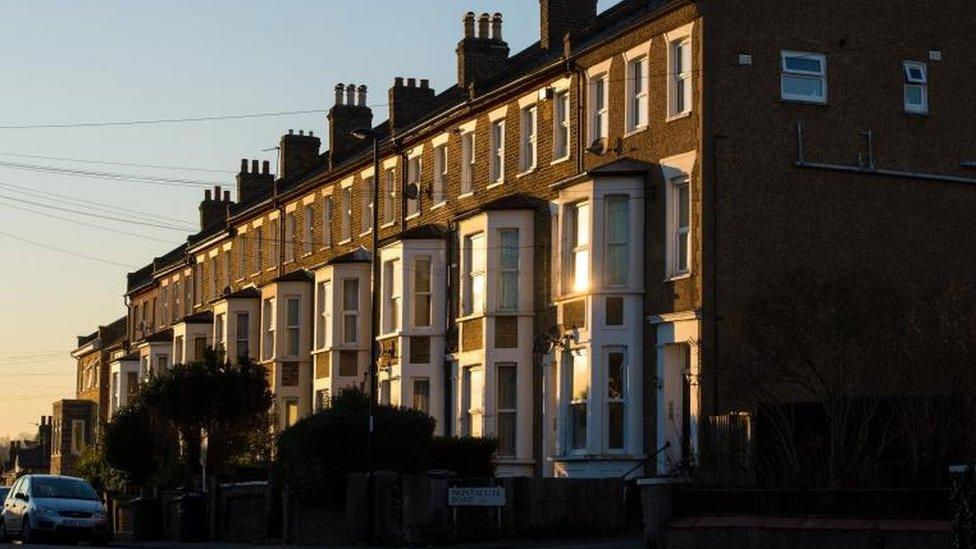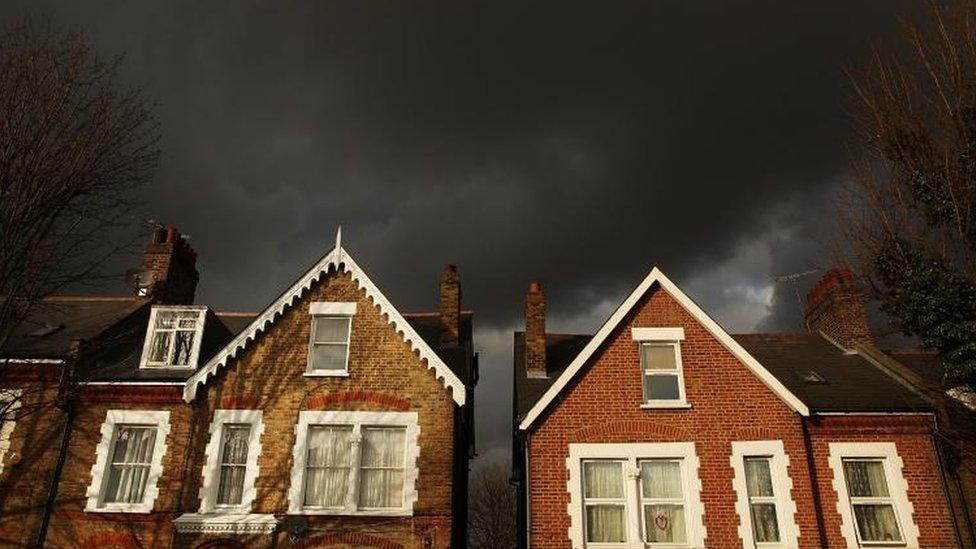'New year bounce' for UK housing market
- Published

Activity in the UK housing market picked up at the start of the year, surveyors say, with cautious expectations of the lift continuing.
The number of people looking to buy rose in January, as did the amount of homes for sale, the Royal Institution of Chartered Surveyors (RICS) said.
Sales that had been agreed rose for a second month in a row.
RICs said an easing uncertainty about the general election and Brexit prompted the optimism.
Simon Rubinsohn, the institution's chief economist, said the increase in properties being put on the market was a "much needed development" after new listings had been at record lows in recent years.
"It remains to be seen how long this newfound market momentum is sustained for, and political uncertainty may resurface towards the end of the year," he said. "But, at this point in time, contributors are optimistic regarding the outlook for activity over the next 12 months."
Brexit impact
Various surveys have suggested the UK housing market has seen a pick-up following the general election.
North London estate agent Jeremy Leaf said: "We probably won't know until the end of February or the beginning of March whether this renewed interest can translate into robust sales giving us more confidence that this housing market recovery is robust and sustainable."
Property professionals from across the country submitting views to the RICS survey said the greater activity was the result of more certainty and confidence, but there was also the suggestion that the relatively mild weather had made house-hunters more active.
Spring tends to be the busiest time for the housing market, as buyers and sellers act on new year plans to move home.
Housing commentators had predicted the pick-up owing to the decisive election result, but there have also been expectations of a slowdown once the Brexit negotiations hit their next key deadline at the end of the year.

Separate figures from UK Finance, which represents the major banks, showed a 17% rise in the number of homes repossessed by mortgage lenders.
Some 1,330 homeowners mortgaged properties seized in the final quarter of the year, leading to the rise compared with the same period the previous year.
Homes are repossessed when there is no likelihood of a mortgage borrower being able to make repayments.
Andrew Montlake, managing director of the mortgage broker, Coreco, said: "On this evidence lenders are increasingly playing hardball with borrowers who are struggling."
However, UK Finance said that the total was still comparatively low, despite the increase, as repossession levels remained well below those seen between 2009 and 2014.
It said the increase was driven in part by courts and lenders processing a backlog of older cases.
- Published3 January 2020

- Published9 July 2020
